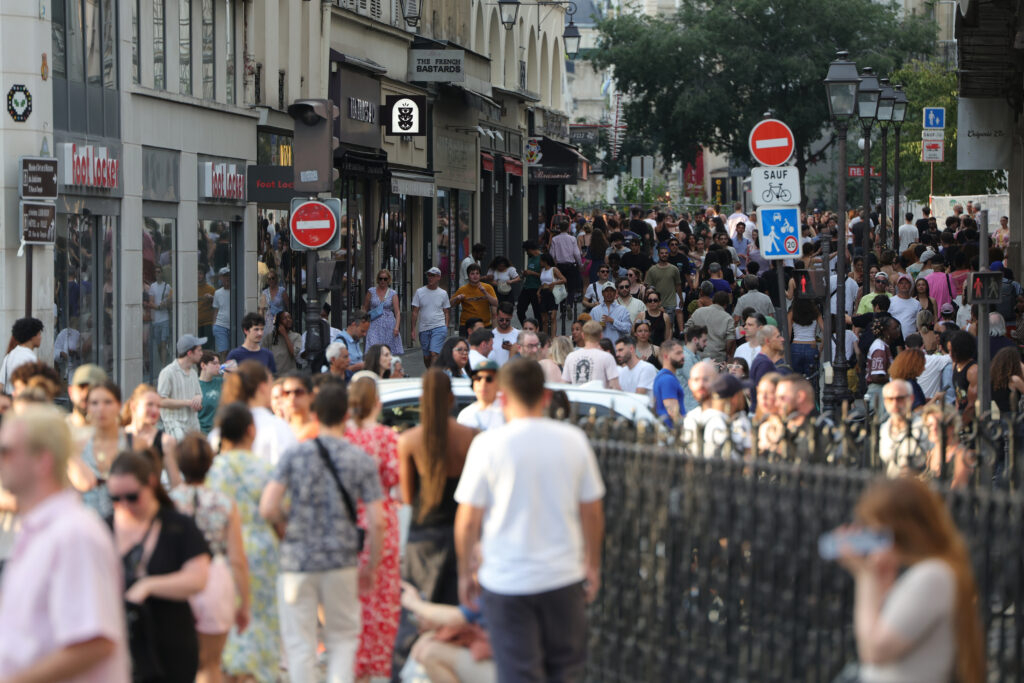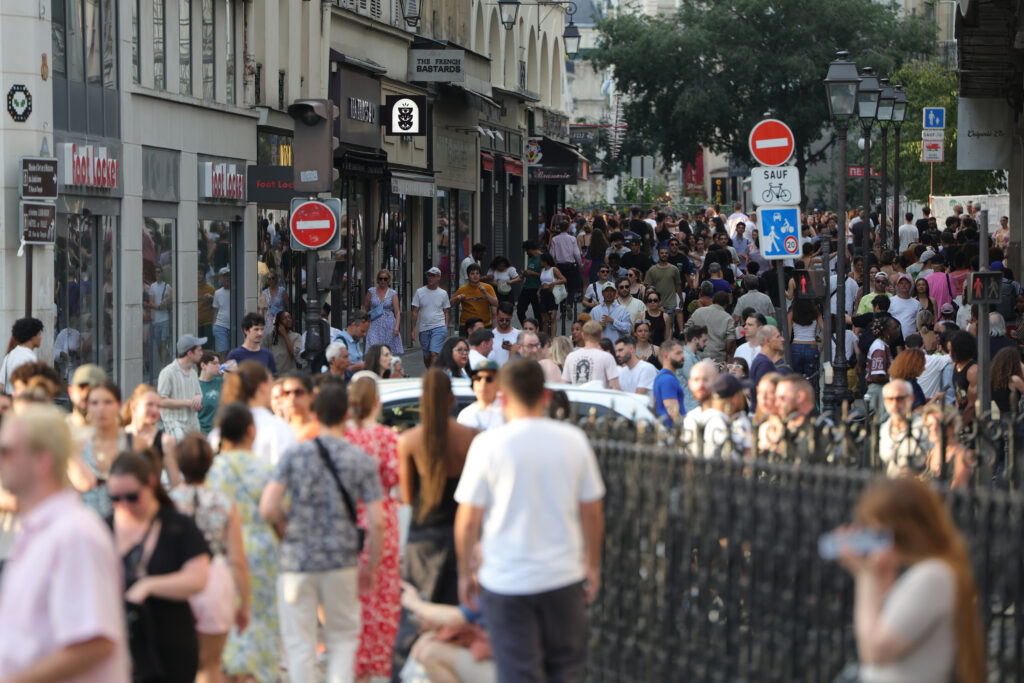Deux morts, dont la mariée, tuée par balles, lors d’un mariage dans le Luberon
Deux personnes ont trouvé la mort dimanche au bout de la nuit dans une fête de mariage, dont la mariée, et trois ont été grièvement blessées, après que des hommes cagoulés et armés ont tiré sur le couple, à Goult, petit village du Luberon, dans le Vaucluse.Si aucune piste n’est pour l’instant privilégiée, l’hypothèse d’un règlement de comptes sur fond de trafic de stupéfiants est envisagée, précisait dimanche matin une source proche du dossier, alors qu’un dispositif de gendarmerie très important a été mobilisé sur l’enquête, pour traquer et interpeller les tireurs, toujours en fuite.”Je pense que c’était ciblé”, a confirmé le maire de la commune, Didier Perello, “en colère, révolté, sous le choc”, lors d’un point presse improvisé sur place, en fin de matinée: “Nous sommes à proximité de communes malheureusement connues pour ce genre de faits”, a ajouté l’élu, à la tête de la commune depuis 2001.Sous un soleil et une chaleur écrasants, le village de Goult était calme dimanche, presque endormi, quelques heures à peine après les faits, vers 04h30 du matin, au moment où le couple de mariés quittait la fête, organisée dans la salle des fêtes de la commune.Sur le départ, à bord d’une voiture, les mariés se sont retrouvés pris pour cibles par les tirs de plusieurs assaillants cagoulés et armés, arrivés de leur côté à bord d’un véhicule. Si la mariée est bien morte par balles, après avoir été touchée par les tirs, l’autre personne décédée, l’un des agresseurs, a été écrasée par la voiture des époux alors que ceux-ci tentaient de s’échapper.D’après une autre source proche du dossier, un enfant d’une dizaine d’années figurerait parmi les blessés graves, sans qu’il soit encore précisé comment ceux-ci ont été touchés, par les balles des tireurs ou lors de la manœuvre du véhicule des mariés.Selon le maire de la commune, Didier Perello, la salle des fêtes avait été réservée par le couple depuis le mois de mars. La jeune femme est originaire d’Apt et le marié de Cavaillon, a-t-il précisé.Selon la gendarmerie Provence-Alpes-Côte d’Azur, 28 personnes au total ont été “impliquées” dans ce drame, soit le nombre de personnes encore présentes lors des faits dans la salle des fêtes, à Goult, petit village de quelque 1.000 habitants à peine.- Hélicoptère et équipes cynophiles -Dimanche en fin de matinée, plusieurs voitures de gendarmerie étaient visibles dans le village, barrant l’accès au lieu du drame. Les journalistes de l’AFP sur place ont également pu voir arriver un corbillard d’une entreprise de pompes funèbres.Habitant de la commune, à quelque 200 m de la salle des fêtes, Daniel, chauffeur routier de 55 ans, a expliqué à l’AFP avoir été “réveillé par du bruit vers 04h30 du matin”: “Puis, vers 06h00, j’ai entendu les bruits de deux hélicoptères survolant le village en rase-mottes. Ca va pas faire une bonne pub pour la commune”, s’inquiétait-il déjà.”J’ai entendu des bruits j’ai pensé que c’était des feux d’artifices”, a témoigné de son côté Tanguy, 29 ans, pizzaiolo de profession, toujours auprès de l’AFPTV. Un très important dispositif a été mis en place pour retrouver les auteurs des tirs, a précisé la gendarmerie dimanche matin, soulignant notamment que l’enquête a été confiée à la section de recherche de Marseille.”Des recherches ont été faites pour vérifier si les personnes responsables pourraient encore être sur la commune”, a notamment précisé le maire de la commune.Un triple dispositif a été mobilisé sur ce dossier par la gendarmerie: un dispositif de commandement fort de 12 personnes, entre Goult et Avignon ; un dispositif de recherche mobilisant 65 personnes, dont un hélicoptère, l’antenne locale du GIGN (Groupe d’intervention de la gendarmerie nationale) et deux équipes cynophiles de piste; et enfin un dispositif judiciaire, avec 30 enquêteurs, dont trois techniciens en identification criminelle et des personnels de l’IRCGN (Institut de recherche criminelle de la gendarmerie nationale) de Pontoise en région parisienne.Patron du restaurant Le Goultois, Guillaume Molinas, 50 ans, craint en tous cas que ce fait divers fasse “parler du village en négatif”. “Le dernier gros fait divers dans le village, ça faisait 125 ans”, souligne cet habitant, “mais il n’y a que les anciens qui s’en souviennent”.





